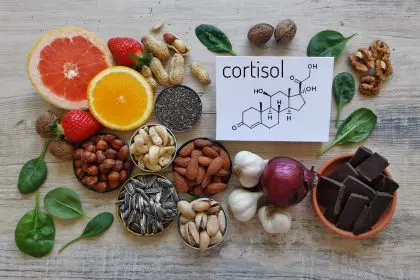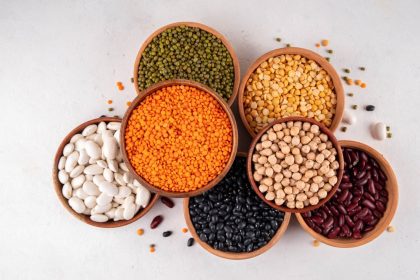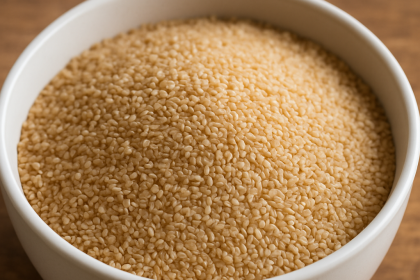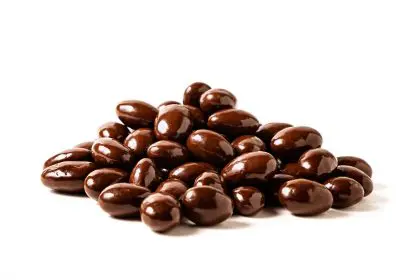When nutrition researchers began studying common beans more closely, they uncovered something remarkable. Analysis of over 44,000 participants revealed that this simple pantry staple could transform dietary health in ways that surprised even seasoned medical professionals.
The science behind the discovery
Research findings astonished the medical community: just one daily serving of beans improved overall diet quality by 15-16%. Even more fascinating, participants who included two servings experienced a 19-20% boost in nutritional value. These improvements extended far beyond basic nutrition, showing significant impacts on long-term health outcomes.
Nature’s nutrient package
Inside these humble legumes, researchers found an impressive array of essential nutrients. Dr. Maria Chen, a nutrition researcher at Stanford University, explains how beans pack multiple benefits into each serving: “We’re seeing combinations of fiber, potassium, magnesium, iron, and folate that work together in ways we hadn’t fully appreciated before.”
The fiber factor
Perhaps most intriguing to researchers is beans’ fiber content. Unlike processed fiber supplements, the natural fiber in beans appears to work more effectively with the body’s systems. This discovery helps explain why bean consumers often show better digestive health and more stable blood sugar levels.
Hidden brain benefits
Recent studies have uncovered surprising connections between bean consumption and cognitive function. The presence of choline, a crucial nutrient for brain health, suggests these legumes might play a larger role in mental wellness than previously understood.
The protein puzzle
While many Americans focus on animal sources for protein, researchers note that beans offer unique advantages. “The combination of protein and fiber in beans creates a sustained energy release that many people find beneficial for maintaining stable energy levels throughout the day,” explains Dr. James Martinez, a nutrition specialist.
Breaking down barriers
Despite clear benefits, researchers noticed an interesting pattern: about 80% of American adults don’t consume enough legumes. This gap represents a significant opportunity for improving public health through simple dietary changes.
The accessibility advantage
Unlike many trendy superfoods, beans remain remarkably affordable. This accessibility makes their health benefits available to virtually everyone, regardless of economic status. Researchers emphasize this democratic aspect of bean nutrition as particularly valuable for public health initiatives.
Cultural connections
Different cultures worldwide have long traditions of bean consumption, often incorporating them into signature dishes. These cultural practices, now supported by modern science, suggest ancestral wisdom about the health benefits of legumes.
The heart connection
Cardiovascular researchers have taken particular interest in beans’ effects on heart health. Studies show that regular consumption may help manage cholesterol levels naturally, supporting overall cardiovascular wellness.
Blood sugar benefits
For those concerned about blood sugar management, beans offer intriguing advantages. Their low glycemic index combined with high fiber content helps maintain steady blood sugar levels, making them valuable for diabetes prevention and management.
Cancer prevention potential
Emerging research suggests beans’ role in cancer prevention deserves attention. Their combination of fiber, antioxidants, and unique plant compounds appears to create protective effects that researchers continue studying.
Environmental impact
Beyond personal health benefits, researchers note beans’ positive environmental impact. As a sustainable protein source, they require significantly fewer resources to produce than animal proteins, making them environmentally responsible choice.
Practical integration
Nutrition experts emphasize the importance of gradually incorporating beans into daily meals. Starting with small portions and increasing slowly helps optimize benefits while minimizing potential digestive adjustment periods.
The variety factor
Different bean varieties offer slightly different nutrient profiles. From black beans to chickpeas, each type brings unique benefits to the table. This variety allows people to explore different options while maintaining nutritional benefits.
Cooking considerations
Research indicates that cooking methods can affect beans’ nutritional value. Simple preparation methods often preserve more nutrients, while certain cooking techniques may enhance mineral availability.
Future implications
As research continues, scientists anticipate discovering even more benefits from regular bean consumption. Current studies explore potential connections to immune system function, skin health, and aging processes.
Global health impact
The implications of these findings extend beyond individual health. Public health researchers see potential for beans to address nutritional deficiencies in populations worldwide, particularly in areas where access to other protein sources may be limited.
Looking forward
The research community continues investigating beans’ full potential for human health. New studies explore everything from their role in gut microbiome health to potential anti-aging properties.
Making informed choices
While beans offer impressive benefits, nutrition experts emphasize the importance of incorporating them thoughtfully into balanced diets. Understanding portion sizes and individual tolerance helps optimize their positive effects.
This simple pantry staple continues surprising researchers with its health-promoting properties. As science uncovers more about beans’ benefits, they increasingly appear to be not just a basic food item but a crucial component of optimal nutrition.
These discoveries remind us that sometimes the most powerful health solutions exist in the simplest places. As research continues, beans’ role in promoting health and preventing disease appears increasingly significant, offering accessible benefits to people worldwide.














